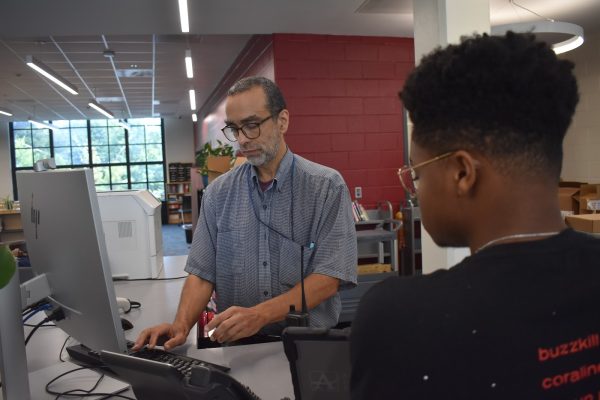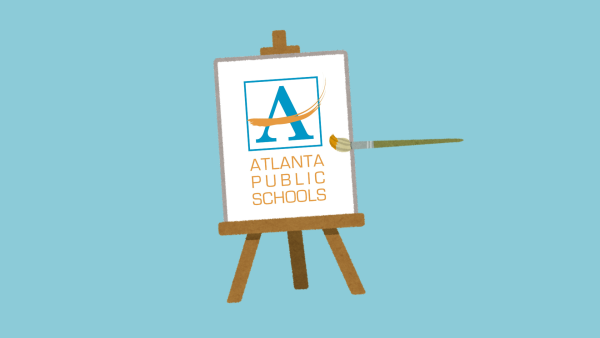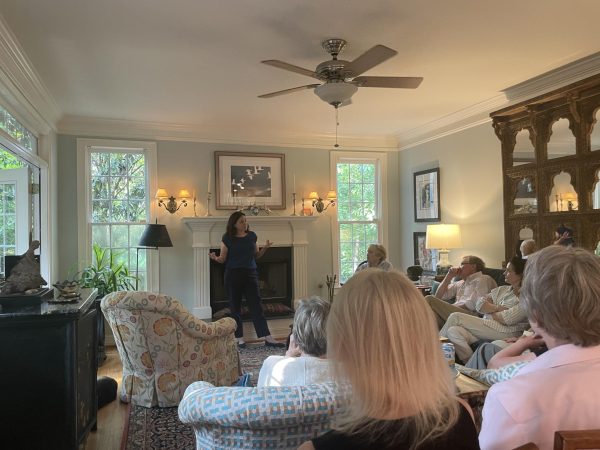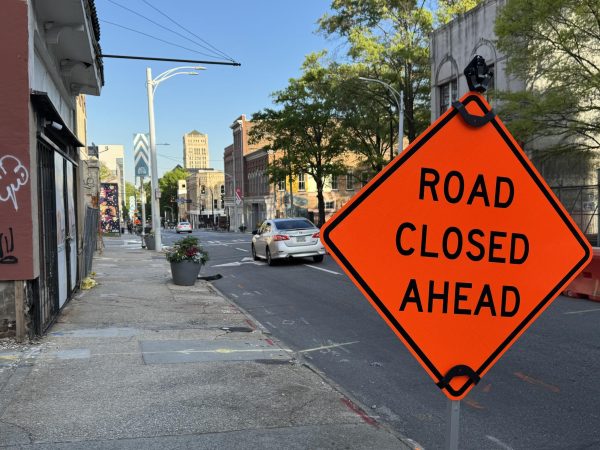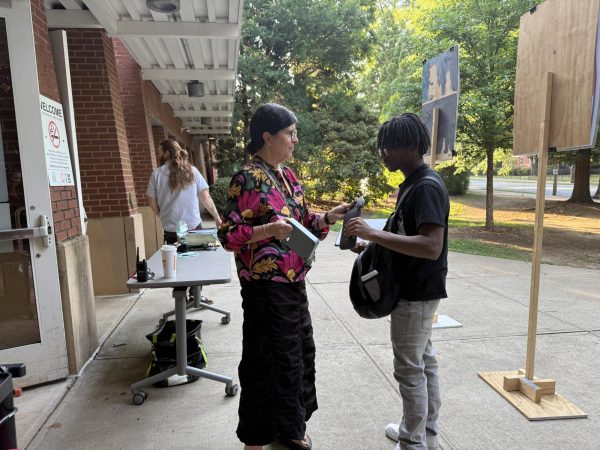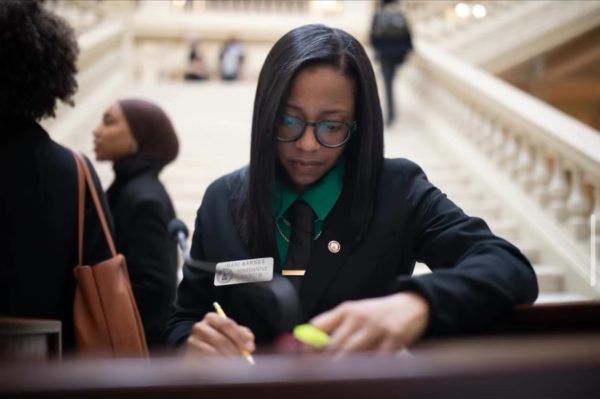Online classes encourage widespread cheating
Some students cheat in their online classes to save time or raise their Grade-Point Average.
In libraries across the metro Atlanta area, thousands of students open Quizlet, copy a phrase and paste the answer into their classwork assignment.
Cheating in online classes is common. Platforms like Atlanta Virtual Academy (AVA) and Edgenuity allow students to learn online, but some take advantage of their format to plagiarize.
Some students blame the setup of online classes for making cheating more accessible. Junior Alex Harris says her semester-long online health class, which she took over AVA, did little to discourage cheating.
“There’s no barrier between the tab that you’re on and Quizlet,” said Harris. “That applies to tests. That applies to practices. That applies to anything you’re doing on this website. That’s nice when you can listen to music, but it’s not nice when you’re trying not to cheat.”
The reasoning for online cheating varies from student to student. Sophomore Guewen Angel Gutierrez Casal believes students in more difficult online courses are less likely to plagiarize and cheat in their classes.
“The easier it is, the more you’re going to be like, ‘no one cares, I’ll just copy this,’” said Gutierrez Casal, who took geometry online during her freshman year. She’s one of many students who took an online class to get ahead in school.
For Harris, the appeal of getting ahead on coursework and saving time is what pushed her to cheat. She says taking a less rigorous class wasn’t worth the hours it took, even though it got a required semester-long credit out of the way.
“Looking at it on paper, it seemed like the perfect way to just get a credit out of the way,” Harris said. “In reality, I got the credit out of the way, but … I didn’t feel engaged.”
A lack of challenging content is only one of the reasons some students cheat in their online classes. Sharon Heckstall, a personal fitness instructor who teaches a class through Atlanta Virtual Academy, believes the issue impacts both overachievers and students who are behind.
“I think fear is a big factor,” Heckstall said. “Some underachieving students feel overwhelmed and feel they don’t have the capability to complete an assignment, so they see cheating as an option.”
On the other end, some gifted students cheat to get the high grades to which they are accustomed.
“Teachers also have to do a better job of giving those students assignments that are rigorous, so they don’t lose interest,” said Heckstall. She says that online programs also need to stress the importance of fidelity to students.
Atlanta Virtual Academy and Edgenuity don’t acknowledge cheating in their introductory videos. Students aren’t told what the punishment for cheating is or what steps AVA and Edgenuity take to catch academically dishonest students. Heckstall believes that students thrive best under a clear set of rules.
“We need to create a framework of expectations for students so they know what’s acceptable and what’s not acceptable,” Heckstall said.
In physical classes, teachers have honor statements on their walls and detail their policies on plagiarism and cheating in their syllabi. According to Harris, current online platforms lack such rules.
“It doesn’t discourage what you would think of as cheating,” Harris said. “It doesn’t actively say ‘Okay, go look up the Quizlet for this,’ but everything is so much busy work. It makes it so easy for students to cheat.”
Suggestions to limit cheating vary greatly. Gutierrez Casal suggested secured browser windows. Harris thought a plagiarism detector would prevent copying and pasting.
“People are aware that it’s happening,” said Harris, “but that doesn’t always mean that you know how to stop it, or who’s doing it.”


